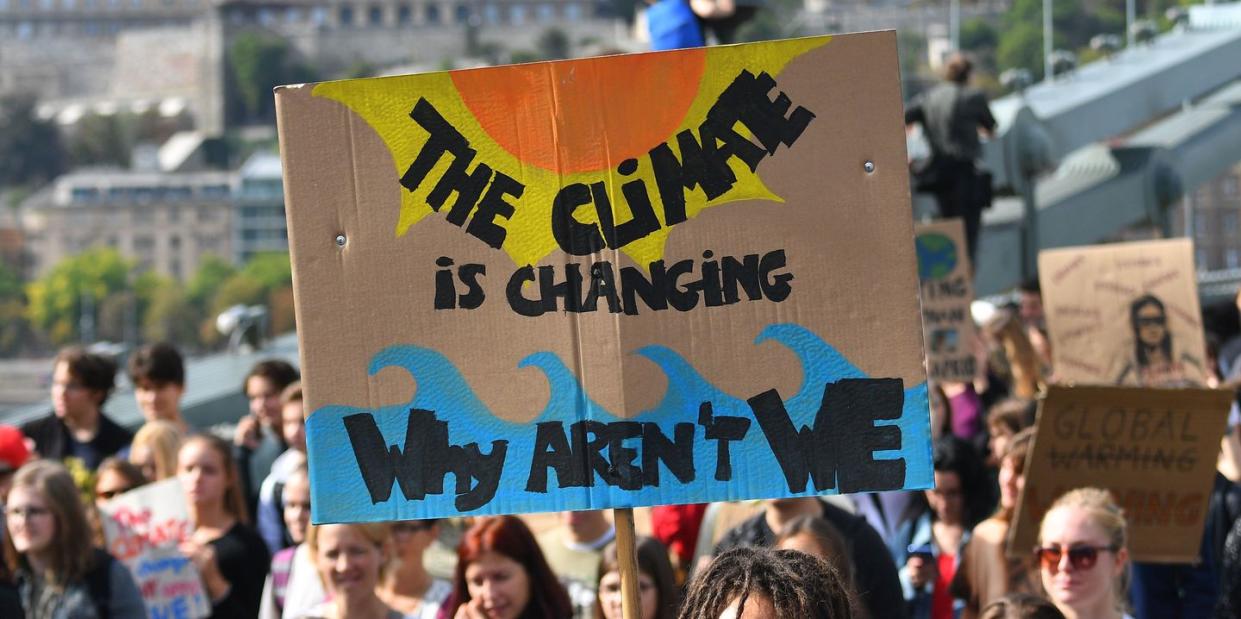It's Only Going to Get Worse From Here

Today is the 50th anniversary of Earth Day. Typically on this special occasion, climate activists would come together to commemorate our beautiful planet and protest for additional change. But none of this is possible because of the current COVID-19 pandemic. Instead, we’ve been confined to our homes and forced to dampen the impact that we could have had by mobilizing digitally.
This pandemic has led millions of Americans to struggle to make ends meet, environmentalists included. Last week, the United States had a staggering 22 million citizens file for unemployment. While Americans have been suffering through this unprecedented time, fossil fuel companies have taken advantage of this to further their own interests. Just two weeks ago, the Canadian company TC Energy began construction on the infamous Keystone XL pipeline in Montana. This pipeline runs from the Canadian province of Alberta and stretches all the way to Nebraska. During this global health crisis, people aren't paying as much attention to fossil fuel projects, so TC Energy snuck behind our backs to start construction.
On March 27th, the Trump administration allowed the Environmental “Protection” Agency to suspend environmental regulations indefinitely, allowing companies to pollute the Earth to any extent they desire without consequence. Not only is this a danger to the environment, but this is also a serious issue of public health. It has been shown that increased air pollution leads to respiratory distress in communities affected, which can make people more susceptible to the effects of the novel coronavirus. Governments and polluters who are taking advantage of the public health crisis we are facing should be ashamed of themselves and recognize that violating indigenous lands, polluting the Earth, and putting peoples’ lives on the line does not constitute essential work.
Sometimes we talk about the climate crisis in futuristic terms, but do not be mistaken: the climate crisis is already here, and it is ravaging the world. From natural disasters like Hurricane Sandy destroying shorelines in New Jersey to extreme floods in Jakarta, there is no doubt that we are in the midst of a battle. If we decide not to take immediate action to combat the climate crisis, there will be dire consequences. A dark future is awaiting us if world leaders decide to cower and forgo their responsibilities to the people and planet.
If we don’t take immediate action against climate change, outbreaks could increase in frequency and intensity. For instance, a 2019 study shows two species of mosquitoes known for spreading viruses, such as Zika and dengue, could be exposed to an additional one billion people within the next 100 years because of a heating climate.
There is a gloomy future ahead of us if we refuse to do something about the climate crisis. But hope is not lost. Let us learn a lesson from the COVID-19 crisis and not make the same mistakes when thinking about the climate crisis.
We have to envision a world in which all of the best solutions are possible. Time may not be on our side, but the human species has proven over and over again that we possess the tools to create radical change.

Best of all, there are already solutions at our fingertips. Broad, sweeping policies like the Green New Deal give us a chance to combat climate change and future disasters. We have the capability not only to solve this crisis but to solve the systemic inequalities at the heart of our society. Organizations such as Polluters Out are taking matters into their own hands by connecting both the climate and social justice movements to generate change. During these times, humans have come together to build networks of solidarity. If we have the ability to stand together to fight a crisis now, we can do it in the future. We can create big solutions and support those most at risk. Solving the coronavirus pandemic should be a call to action.
Aurora Yuan, Claire Hedberg, and Kira Traylor are all members of Polluters Out, an international youth-led organization focused on kicking the influence of fossil fuel corporations out of climate negotiations, banks, governments, and educational institutions.
You Might Also Like
